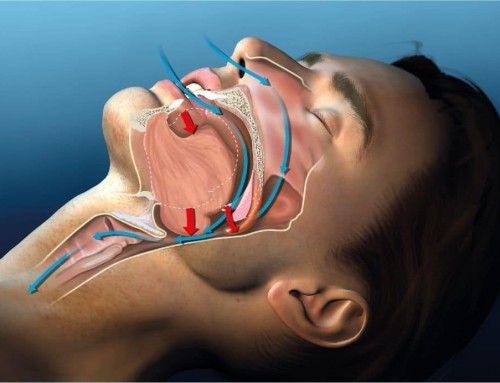Many parents believe that orthodontic treatment is only necessary when a child’s permanent teeth have fully emerged. However, early intervention can address airway and jaw development issues before they become serious, preventing future complications and improving overall health. Identifying and treating developmental concerns at a young age can set the foundation for proper breathing, facial growth, and long-term oral health.
Waiting until adolescence to begin orthodontic care may limit treatment options and require more extensive correction later. By evaluating children early, Airway Orthodontics in Sacramento can guide jaw growth and ensure that airways develop properly, reducing the risk of conditions like sleep-disordered breathing and improper facial development.
When Should a Child Be Evaluated for Jaw and Airway Development?
Children should be evaluated for orthodontic and airway health concerns as early as age 2 or 3. The jaw and airway develop rapidly during childhood, and early assessments can help detect issues before they become severe. Even if a child does not yet have permanent teeth, an orthodontist can identify structural problems that may contribute to airway restrictions, mouth breathing, and misaligned bites.
A child’s facial and jaw development plays a crucial role in their ability to breathe properly, sleep soundly, and maintain good oral health. Regular evaluations ensure that potential problems, such as a narrow airway or underdeveloped jaw, can be addressed before they affect long-term health.
Signs That Your Child May Need Early Orthodontic Treatment
Parents should look for signs that may indicate a need for early orthodontic intervention. Many of these symptoms are subtle and can be mistaken for unrelated health concerns. Recognizing these early warning signs can help prevent future complications.
Mouth Breathing and Poor Nasal Breathing
Breathing through the mouth instead of the nose can indicate airway obstruction and poor jaw development. Chronic mouth breathing may lead to improper facial growth, dry mouth, and an increased risk of dental decay. Children who consistently breathe through their mouths may also experience frequent colds, allergies, and poor sleep quality.
Nasal breathing is essential for proper oxygen intake and overall health. If a child struggles to breathe through their nose, orthodontic treatment may be necessary to expand the jaw and improve airway function.
Improper Tongue Posture and Its Effects
The tongue plays a significant role in guiding jaw development. A low tongue posture, where the tongue rests at the bottom of the mouth instead of the roof, can lead to a narrow palate and crowded teeth. This can contribute to breathing difficulties and improper swallowing patterns.
Proper tongue posture supports natural jaw expansion and optimal airway function. When a child’s tongue does not rest correctly, early orthodontic treatment can help guide the jaw into proper alignment and prevent long-term issues.
Sleep Concerns and Behavioral Indicators
Many children with airway and jaw development issues also struggle with sleep disturbances. Symptoms such as snoring, restless sleep, and frequent waking during the night may indicate sleep-disordered breathing. These issues can lead to daytime fatigue, poor concentration, and behavioral challenges, including hyperactivity and difficulty focusing in school.
If a child consistently wakes up tired, struggles with bedwetting beyond the expected age, or exhibits signs of hyperactivity, an orthodontic evaluation may be beneficial. Treating the underlying airway concerns can lead to better sleep and improved overall well-being.
Treatment Options for Young Children and Their Long-Term Benefits
Early orthodontic intervention offers a range of treatment options designed to support proper jaw and airway development. These treatments are often less invasive than those required in adolescence or adulthood, making them an excellent choice for preventing long-term complications.
Growth-Guided Orthodontics for Proper Jaw Development
Orthodontic treatments that encourage proper jaw development help create more space for teeth and improve airway function. Devices such as palatal expanders gently widen the upper jaw, allowing for better nasal breathing and reducing the risk of future orthodontic issues.
Early intervention can prevent the need for extractions or surgical corrections later in life. By addressing structural concerns at a young age, orthodontists can ensure that a child’s jaw develops in a way that supports healthy breathing and facial balance.
Myofunctional Therapy to Support Orthodontic Success
Myofunctional therapy involves exercises that train the tongue, lips, and facial muscles to function correctly. When combined with orthodontic treatment, myofunctional therapy helps reinforce proper breathing habits and tongue posture, ensuring that jaw expansion results are long-lasting.
Children who undergo myofunctional therapy often experience improved nasal breathing, better swallowing function, and a reduced risk of orthodontic relapse. This therapy is especially beneficial for children who exhibit signs of mouth breathing or tongue thrusting.
Long-Term Benefits of Early Orthodontic Treatment
Early orthodontic intervention offers numerous long-term benefits that extend beyond a child’s dental health. By addressing airway and jaw development concerns early, parents can help their children avoid more complex treatments in the future.
Some of the key benefits include:
- A lower risk of developing sleep apnea or other breathing-related conditions.
- Improved facial symmetry and proper jaw alignment.
- Enhanced ability to breathe through the nose instead of the mouth.
- Reduced likelihood of requiring braces or extractions in the teenage years.
- Better speech development and reduced risk of swallowing issues.
By prioritizing airway health and early intervention, parents can set their children up for a lifetime of improved health and well-being.
Taking Action: What Parents Should Do Next
If a child exhibits any signs of airway or jaw development concerns, parents should schedule an orthodontic evaluation as soon as possible. A professional assessment can determine whether early intervention is necessary and what treatment options may be beneficial.
Early orthodontic care provides a proactive approach to ensuring proper growth and development. By taking action early, parents can help their children achieve better sleep, breathing, and overall health.
Schedule a Consultation Today
Parents who are interested in learning more about early orthodontic treatment should consult with an airway-focused orthodontist. Contact Airway Orthodontics in Sacramento today at (916) 435-9575 to schedule an evaluation and discover how early intervention can set the foundation for lifelong oral health and proper airway function.




